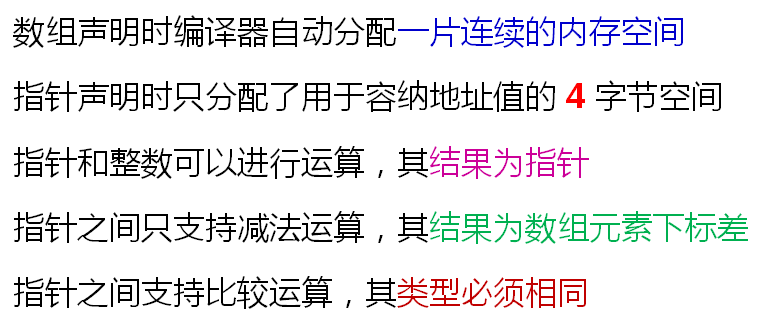数组的本质:
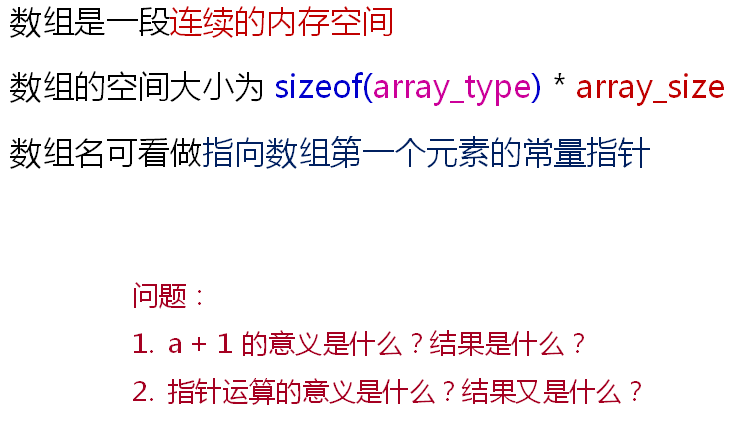
示例程序:
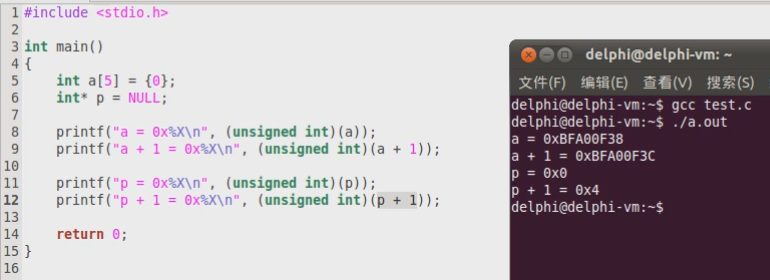
指针的运算:
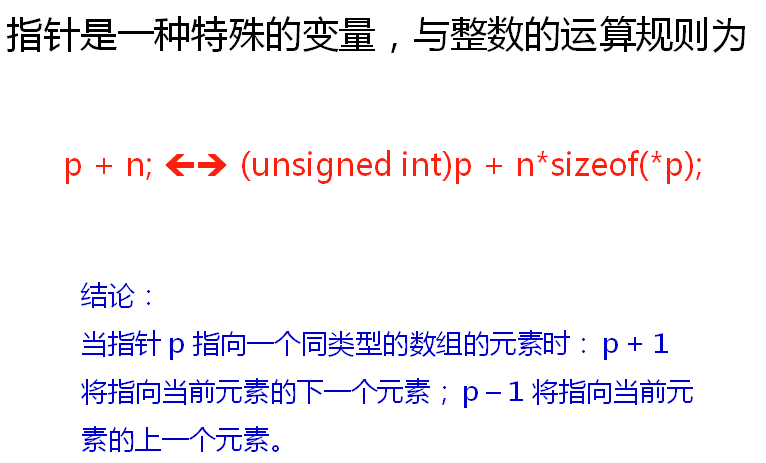
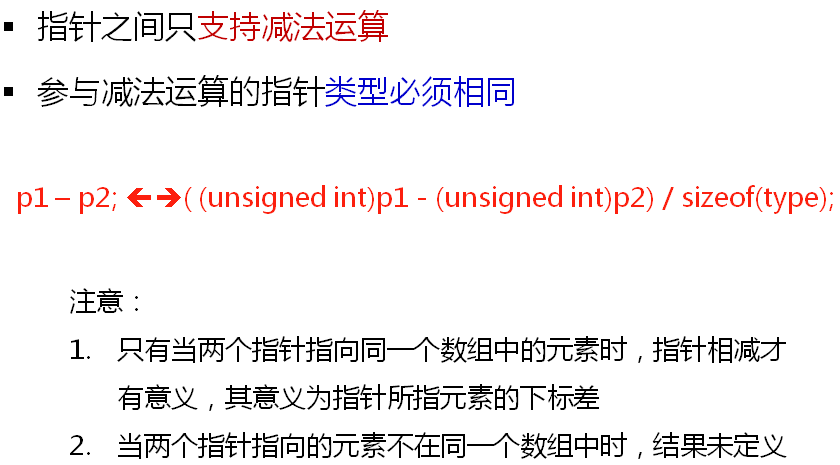
指针的比较:
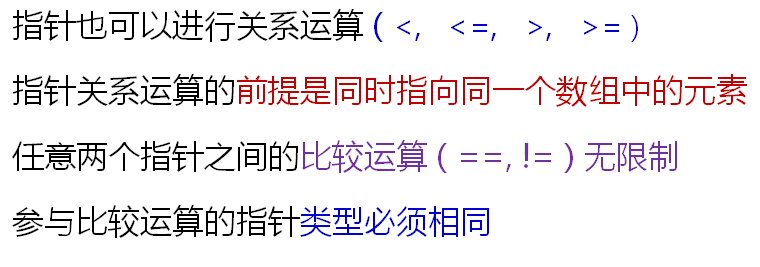
示例程序:
1 #include <stdio.h> 2 3 int main() 4 { 5 char s1[] = {'H', 'e', 'l', 'l', 'o'}; 6 int i = 0; 7 char s2[] = {'W', 'o', 'r', 'l', 'd'}; 8 char* p0 = s1; 9 char* p1 = &s1[3]; 10 char* p2 = s2; 11 int* p = &i; 12 13 printf("%d\n", p0 - p1); 14 printf("%d\n", p0 + p2); 15 printf("%d\n", p0 - p2); 16 printf("%d\n", p0 - p); 17 printf("%d\n", p0 * p2); 18 printf("%d\n", p0 / p2); 19 20 return 0; 21 }
根据以上的分析,14、16、17、18行都是不合法的。15行可以编译通过,但是没有意义,因为两个指针不是指向同一个数组中的元素的。
示例程序:
1 #include <stdio.h> 2 3 #define DIM(a) (sizeof(a) / sizeof(*a)) 4 5 int main() 6 { 7 char s[] = {'H', 'e', 'l', 'l', 'o'}; 8 char* pBegin = s; 9 char* pEnd = s + DIM(s); // Key point 10 char* p = NULL; 11 12 printf("pBegin = %p\n", pBegin); 13 printf("pEnd = %p\n", pEnd); 14 15 printf("Size: %d\n", pEnd - pBegin); 16 17 for(p=pBegin; p<pEnd; p++) 18 { 19 printf("%c", *p); 20 } 21 22 printf("\n"); 23 24 return 0; 25 }
运行结果如下:

小结:
